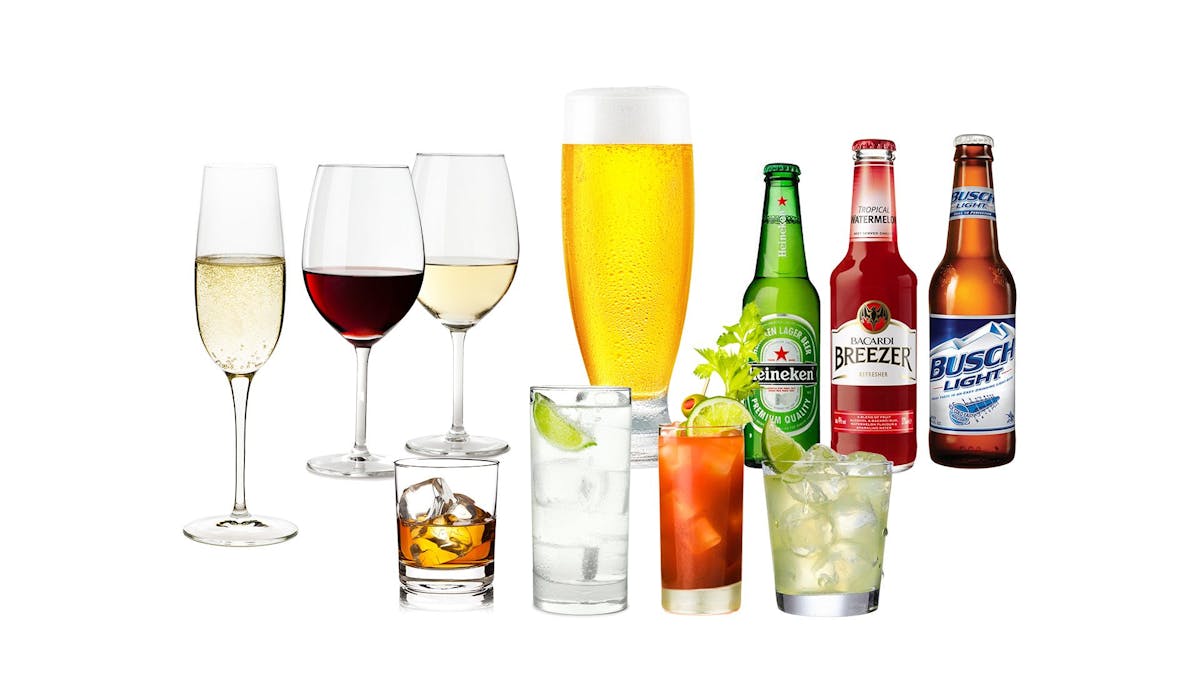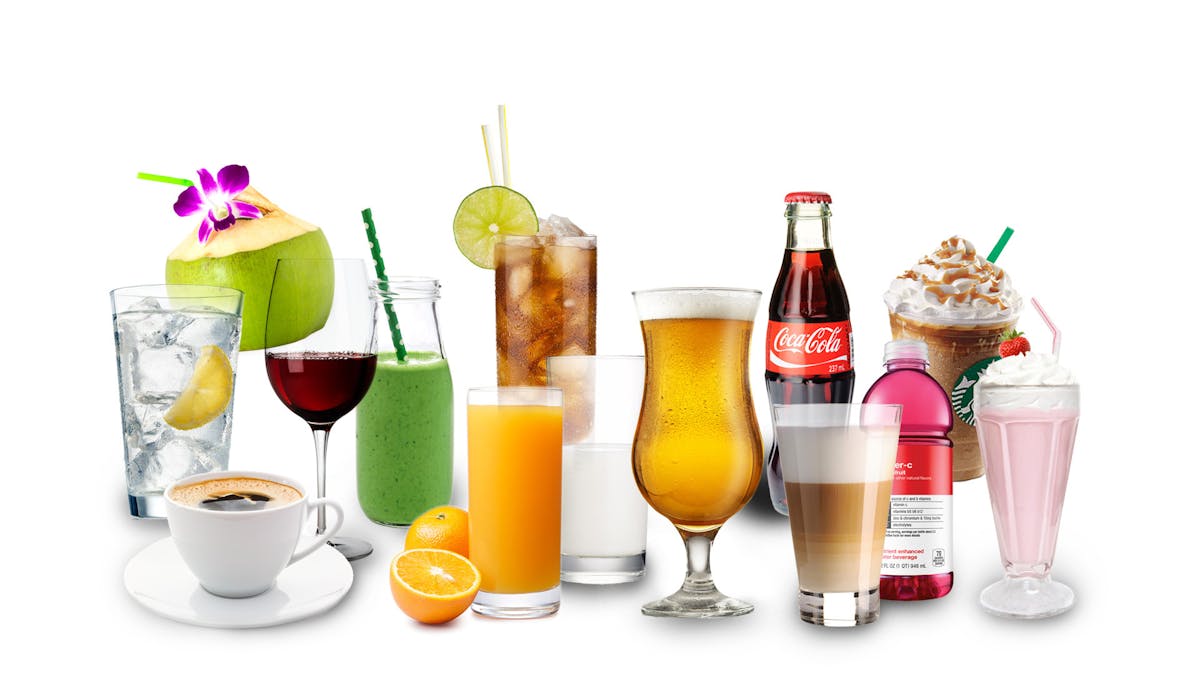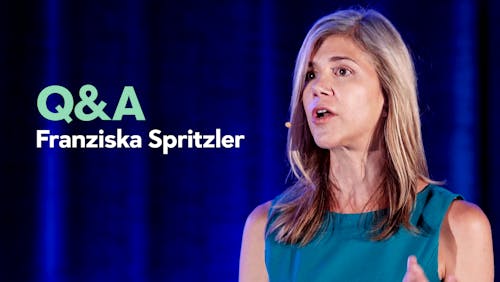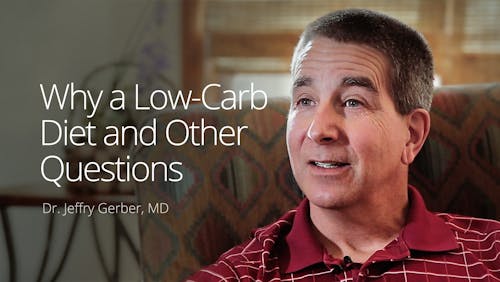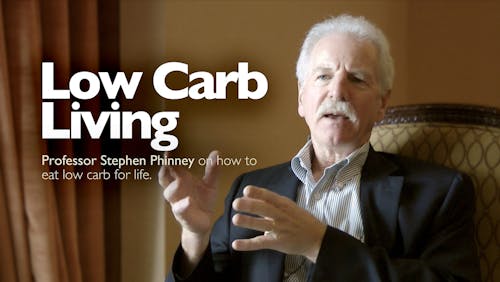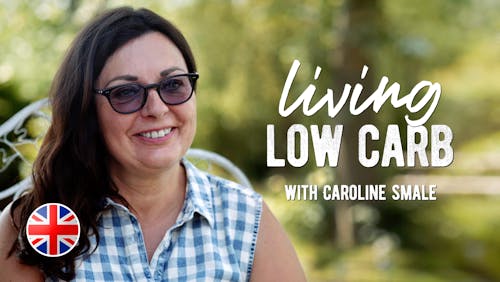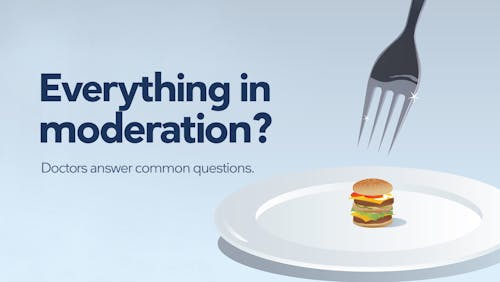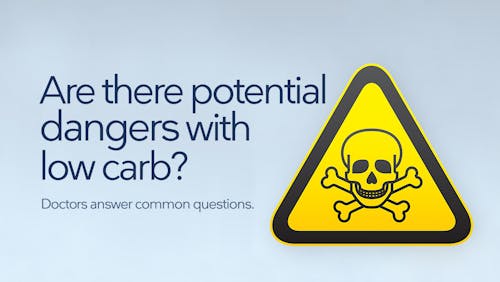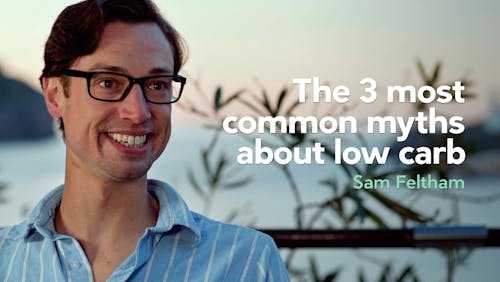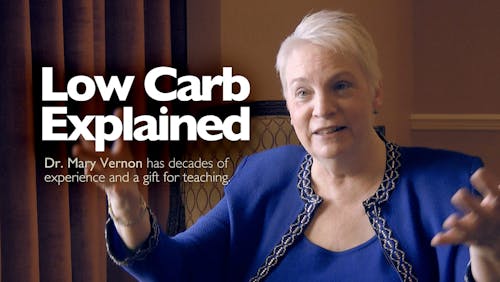The low-carb beer experiment: Can you drink beer and stay in ketosis?
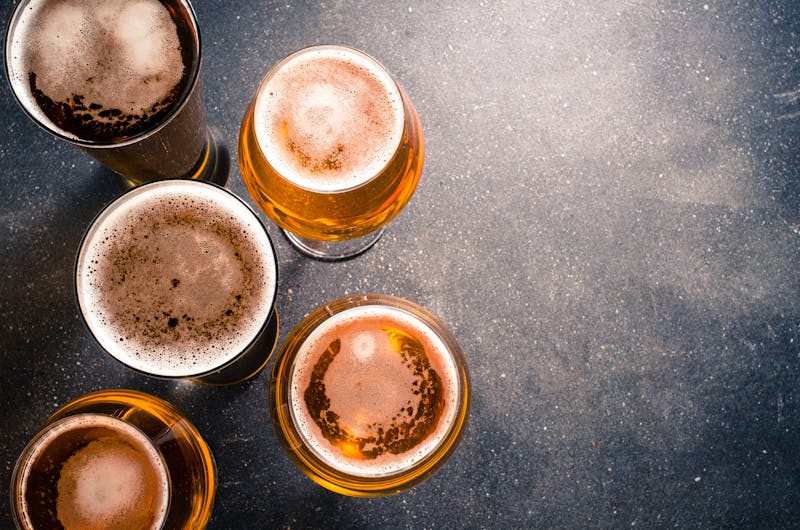
Do you drink beer? Do you know someone who does? Have you ever wondered what drinking beer may do to your blood sugar or blood ketone levels? Perhaps you have eliminated beer as part of your low-carb diet and wonder how having the occasional brew would affect you?
There are quite a few low-carb beers on the market: have you every wondered what the difference would be on your blood sugar and ketone levels between them and regular beer?
If you are living a low-carb lifestyle, or indeed a keto one, you will want to limit your intake of carbohydrates. This will, of course, be entirely individual and down to your individual goals. There is no right way to follow this way of eating, just the right way for you.
Ketone measurements can be helpful for people who want to track their nutritional ketosis, and they come in many forms, from urine strips to blood testing kits. We are seeing more and more evidence that having high ketone levels is not everything. However, we are learning more about the potential health benefits of being in ketosis, and a low-carb lifestyle can also leave you feeling great.
Now, what about beer?! Aside from sugary cocktails, beer is one of the highest-carb alcohol options. Diet Doctor’s visual guide on alcohol recommends avoiding beer, but it does list some low-carb beer options. Although these are listed as being lower in carbohydrates, Diet Doctor had not yet tested whether their effect on blood sugar and ketone levels is in fact smaller than that of regular beer.
So, when the team at Diet Doctor contacted me to see if I would be interested in conducting an experiment with beer…..I was sold!! That said, if I do decide to enjoy alcohol (responsibly), I would usually naturally prefer other options than beer, but in the name of science I thought – why not! The experiment was aimed at testing a variety of beers, (low carb, low calorie and alcohol-free) and seeing what effect each one had on my blood ketone and blood sugar levels.
For those of you who are wondering what I do drink, it would be a toss between gin and slimline tonic, red wine or single malt whiskey usually, and occasionally I enjoy a Guinness…I am Irish after all! I tend to refrain from beer normally as I find it too ‘gassy’ and I just don’t like the taste all that much. It also doesn’t complement my own low-carb lifestyle (but neither does Guinness, I guess).
Having said that, I was interested in what I would find, and eager to help people decide for themselves about beer as part of a low-carb lifestyle, so I gave it a go!
The experiment
In order to make the experiment as fair as possible, I wanted to ensure that I minimized as many confounding variables as I could. That is, I wanted to make sure that the results were directly related to the beer I was drinking, and not some other, unrelated, factor. To do this, it was important to make sure that I controlled other variables that could also affect my blood sugar and ketone levels, such as how much I ate or drank. With that in mind, here was the protocol for each day of testing;
- I would be in a fasted state (4 hours).
- I would test the effect of drinking 4 beers of 440 ml each (the standard size of one can), at 30-minute intervals.
- I would drink the same volume of each drink each time.
- I would avoid eating during the study to make sure that it was the beer affecting my readings and not something else I had ingested.
- I would take blood sugar and blood ketone readings at the same time in 30-min intervals.
- I would stop taking readings 180 min after the first drink, 2 hours after the last drink. This would allow me to see how my blood sugar levels rised after consuming all beverages.
I must add that here at Diet Doctor we by no means recommend drinking large quantities of any type of alcoholic drink. We tested a larger quantity of beer during this experiment in order to be able to show clearly the effects of drinking beer, but by no means recommend doing so as part of a healthy lifestyle.
The equipment
In order to check my levels during the experiment, I needed the right equipment. Here is what I bought, both available from Amazon.
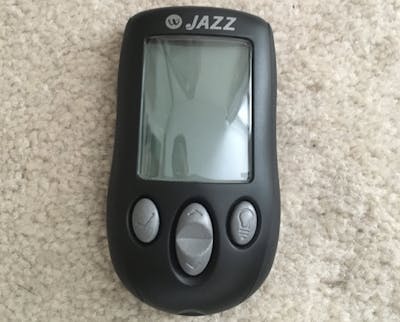


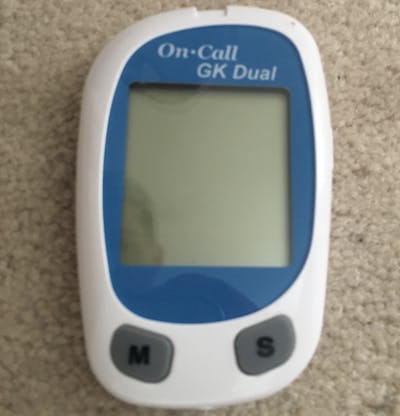


The beer and data
Well, it wouldn’t be an experiment without the beer, right?! There is a limited selection of specific low-carb beer in the UK, which is a shame for those who wish to enjoy beer while also limiting their carbohydrate intake. I settled on the following drinks to have a good range of beers for the experiment:
Experiment 1 – Tap water (Control) [0 g CHO1/100 ml]
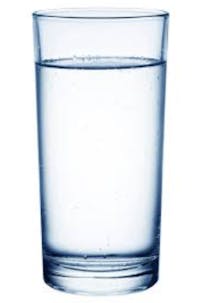


Water was chosen as a control drink, to see what my levels would do if I kept in a fasted state. This provided a baseline of my blood sugar and ketone levels that I could use to compare the effect of drinking the different beers.
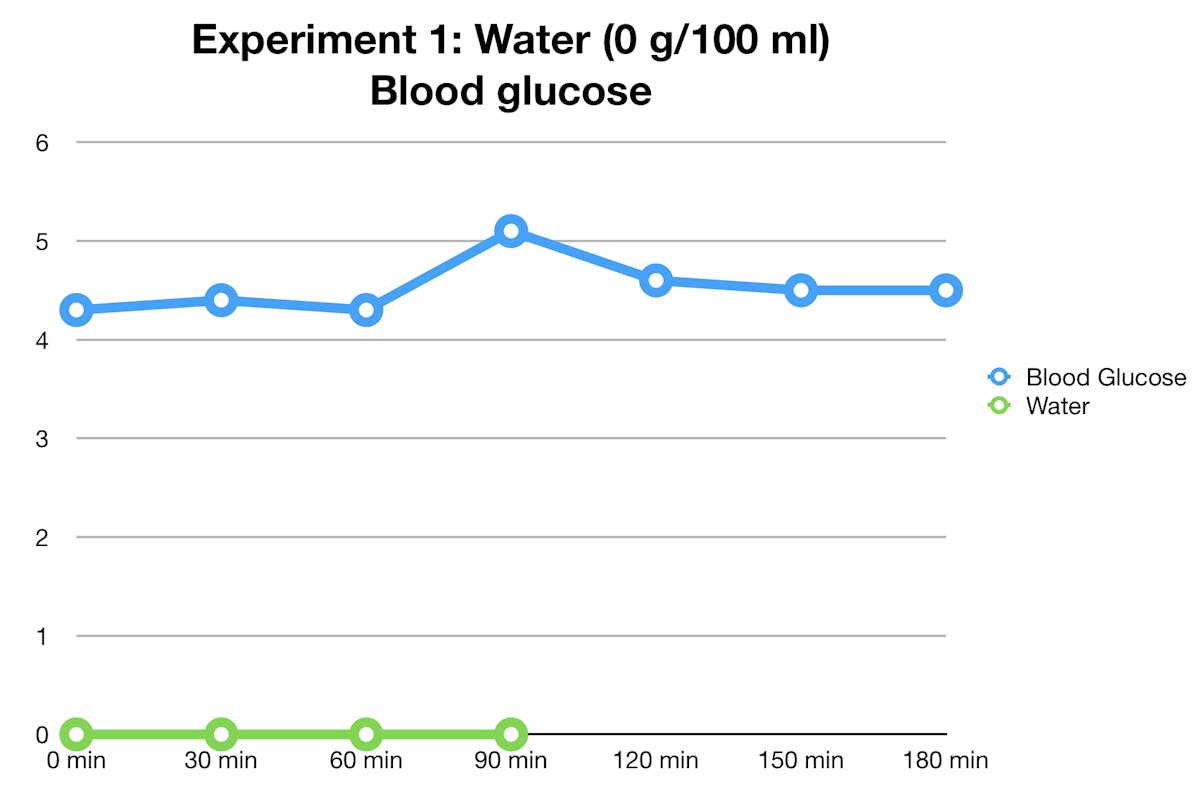


As you can see, there was some fluctuation in my blood sugar levels even when only consuming water. There is, however, only a small increase before the levels come down again, and this represents a normal pattern as the body works to maintain homeostasis.
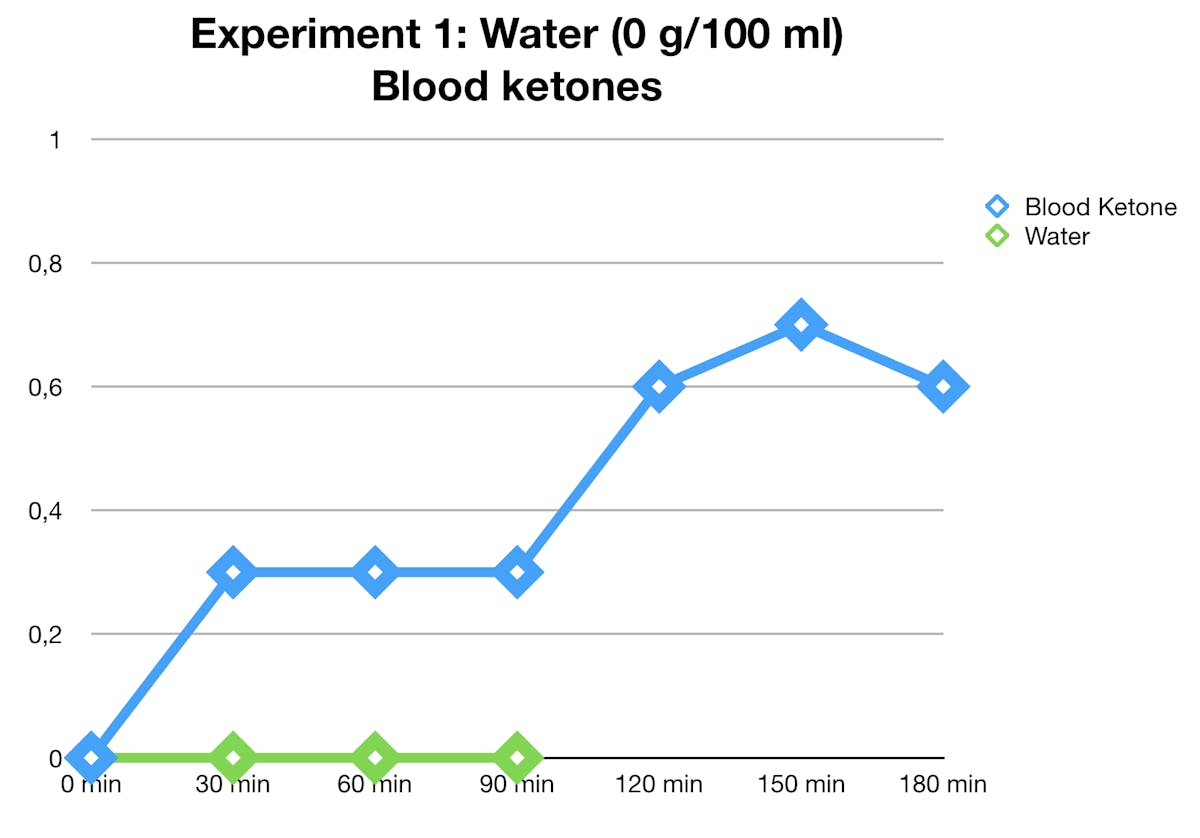


My blood ketones rose throughout the three hours as I consumed only water and went deeper into my fast. This is exactly the response I would have expected.
Experiment 2 – Bud Light (1.5 g CHO/100 ml)
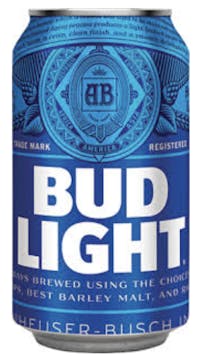


This was chosen as it is marketed as Bud Light. Sure, the name may suggest that is a healthy option, but with ingredients of barley, rice and hops, what would it do to my levels?
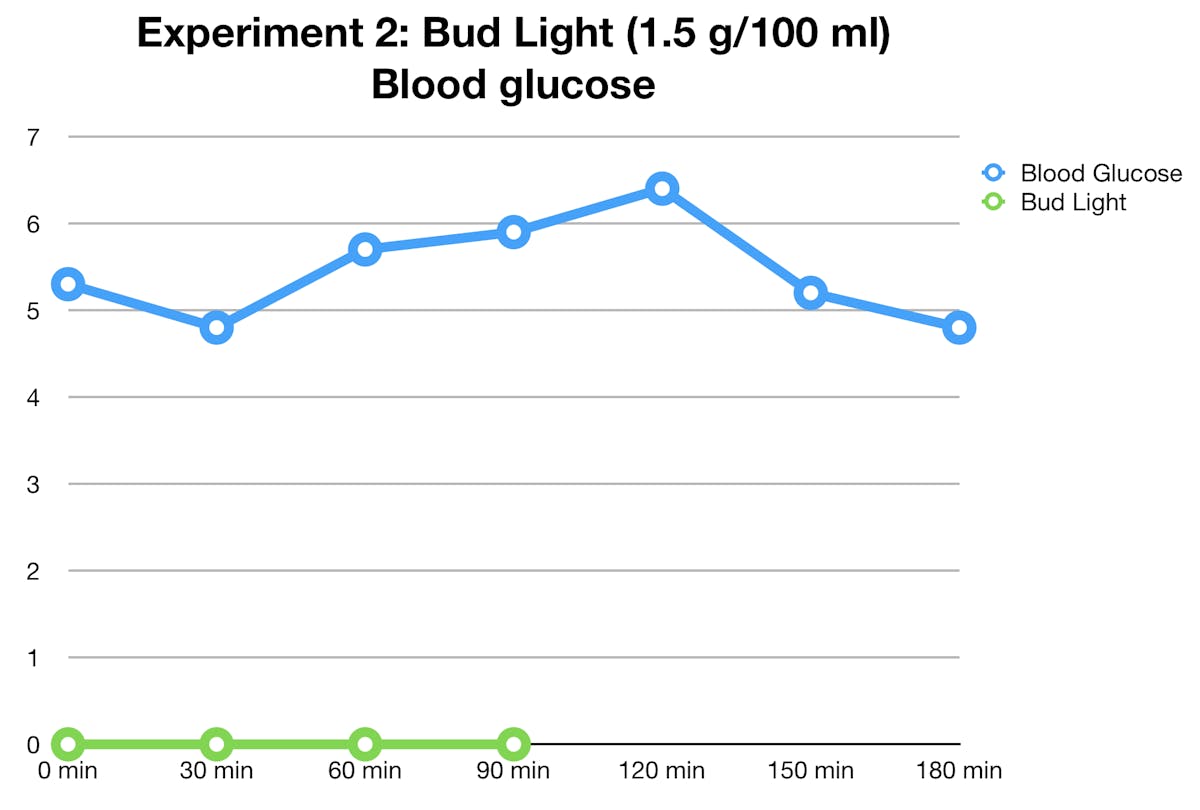


Compare this blood glucose graph to the one from the water experiment: you can see that although my blood glucose started off higher (a normal physiological response to having done exercise that day), the Bud Light still caused a greater rise in blood blood glucose and more fluctuations throughout the 3 hours.
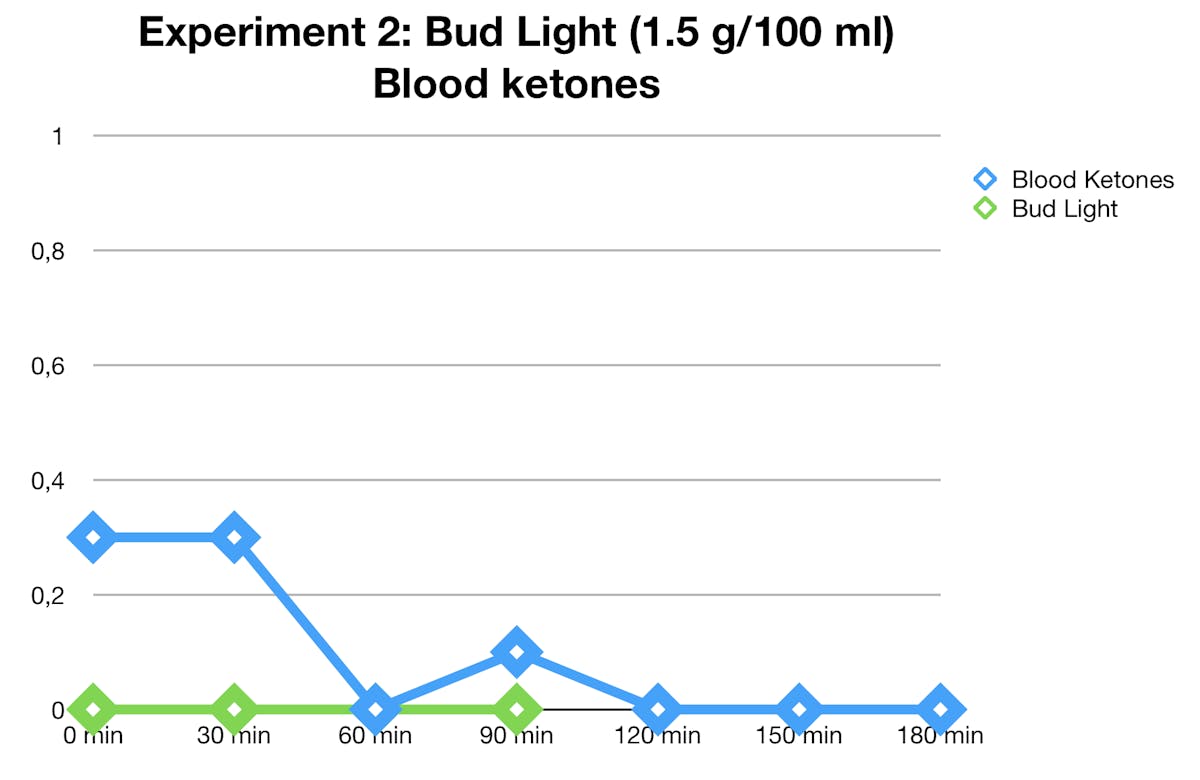


Even though I was only showing very low levels of ketones (not enough to be officially in a ketogenic state), you can see from the graph that the Bud Light reduced my ketones to 0. Compare, again, to the water graph for blood ketones, where they rose throughout the 3 hours.
Experiment 3 – Budweiser (3 g CHO/100 ml)
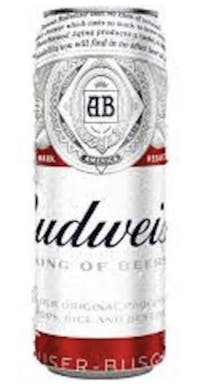


This was chosen as a comparison between the two types of Budweiser beer that are available in the UK. With double the amount of carbs per 100 ml, what would the difference be on my levels?
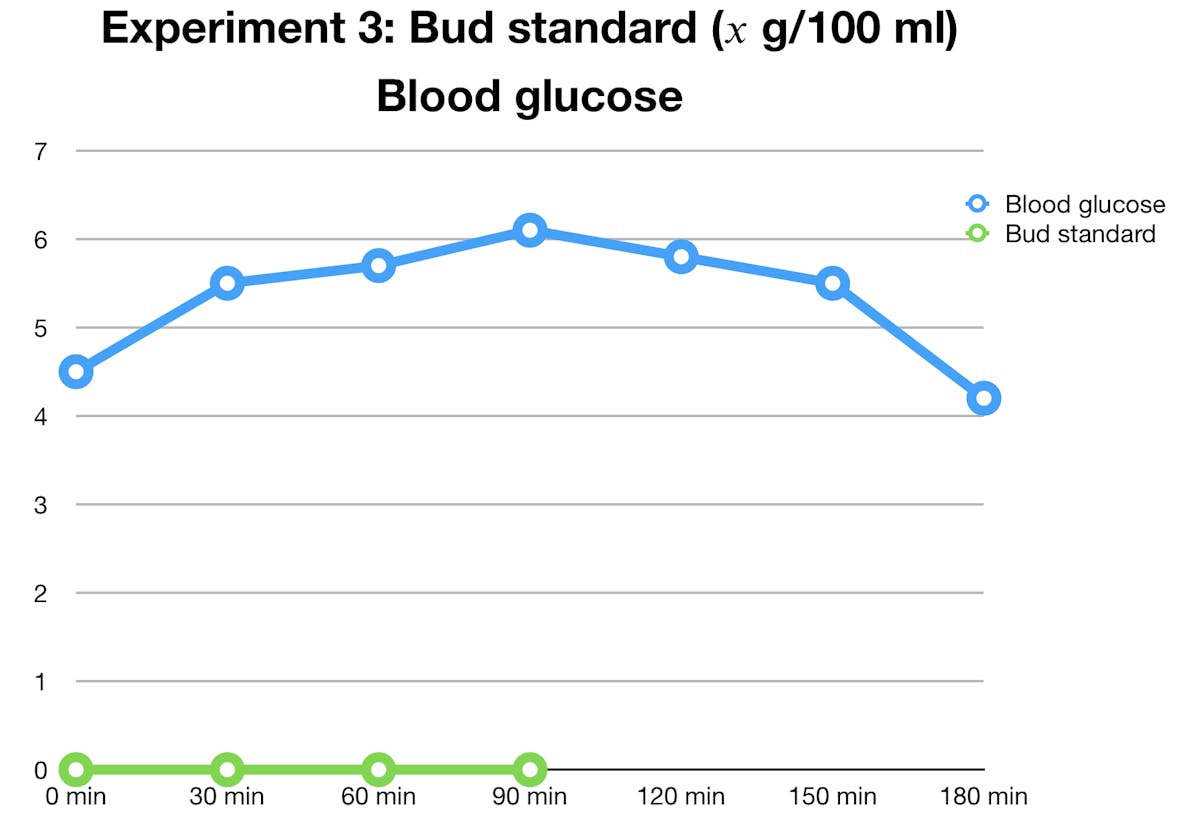


Again, there was a bigger rise in blood glucose than with the water experiment. Note also that while my own blood glucose does not take too long to come back down to normal, I am an insulin-sensitive person. Someone who is insulin resistant may take a lot longer to get their blood sugar back down after consuming these beers.
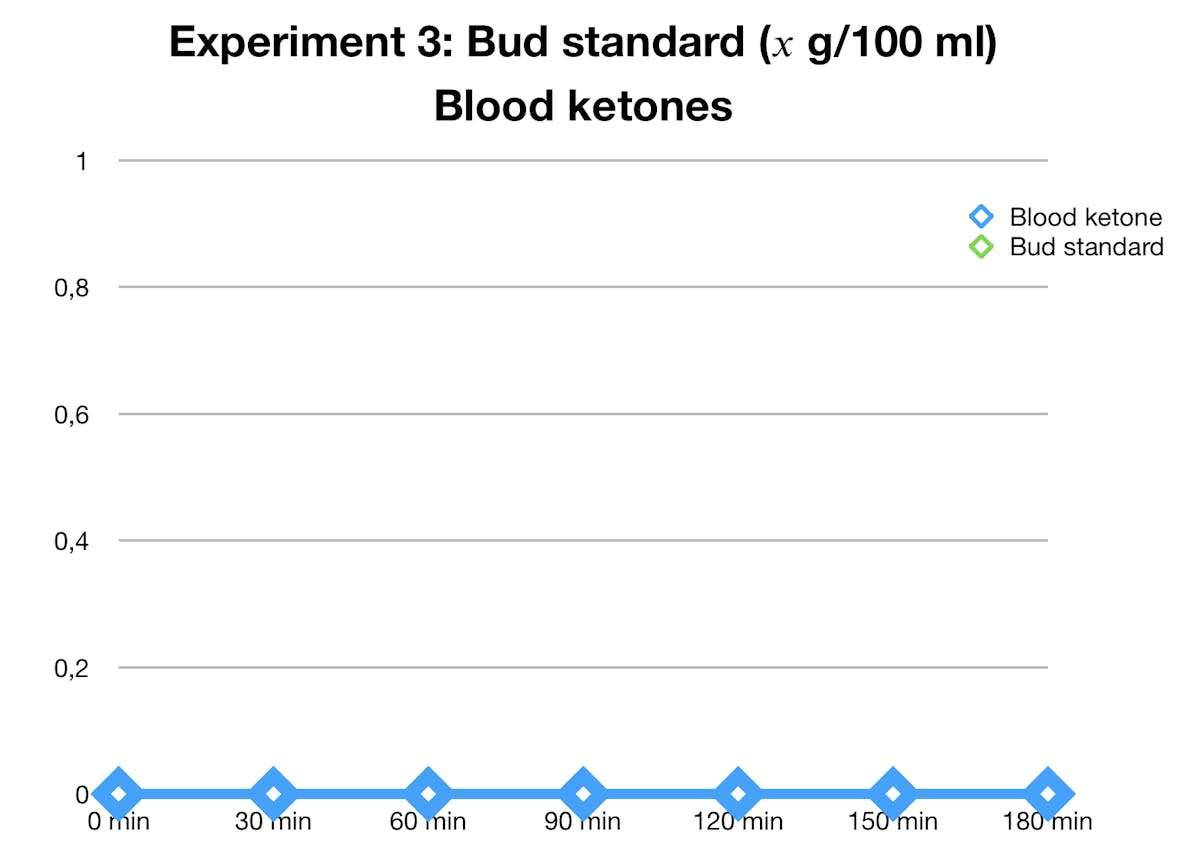


My blood ketones started and finished at zero. As I was not in any kind of ketogenic state at the start of the experiment, we of course cannot say that the Bud knocked me out of ketosis. But, the beer did not allow my ketone levels to rise throughout the three hours (as the water did).
Experiment 4 – Coor’s Light (2.7 g CHO/100 ml)
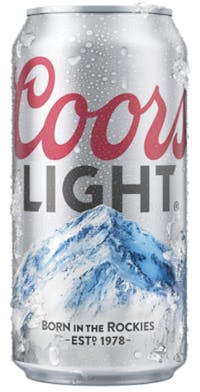


Coor’s Light was the next in line. A name with ‘Light’ in it may suggest that it might contain fewer carbohydrates. However, with 2.7 g of CHO per 100 ml, it had nearly as much as the standard Budweiser. I was still interested to see what impact it would have on my readings.
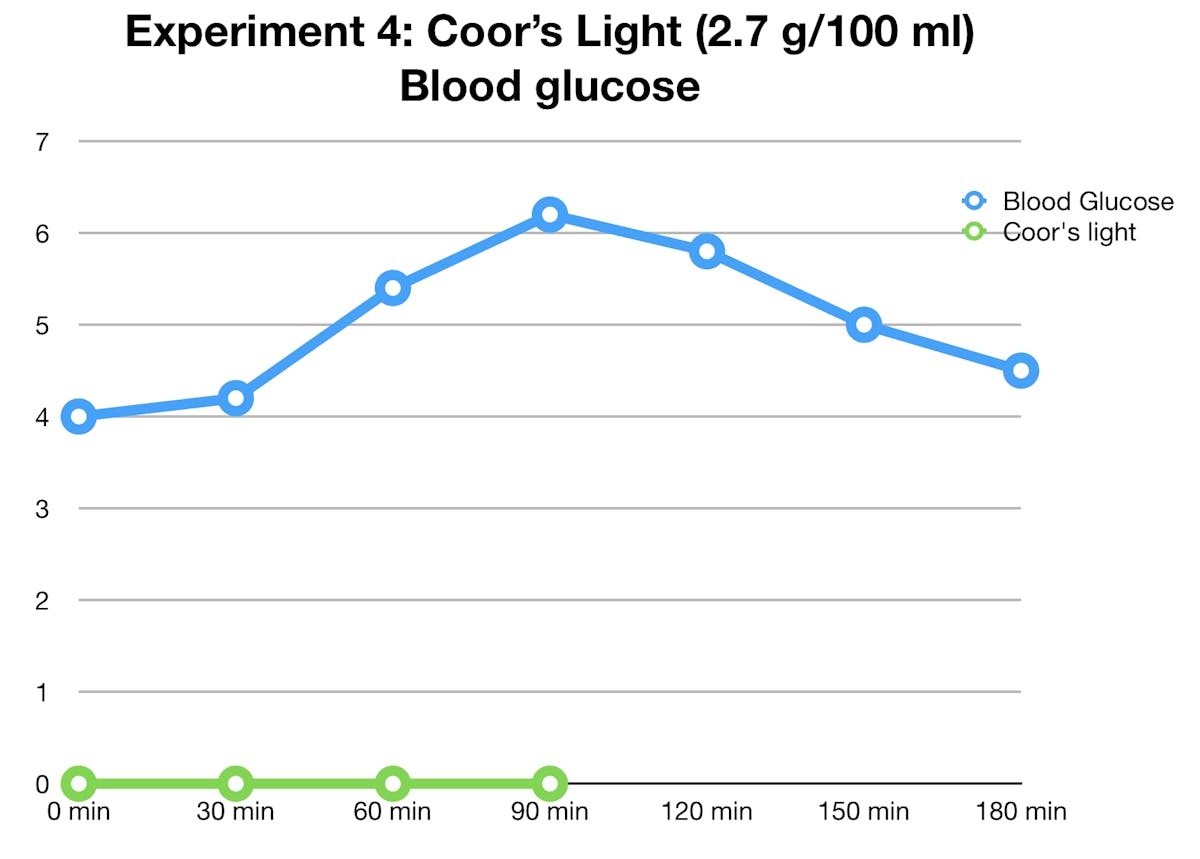


Again, my blood sugar was raised more by the Coor’s Light than by water.
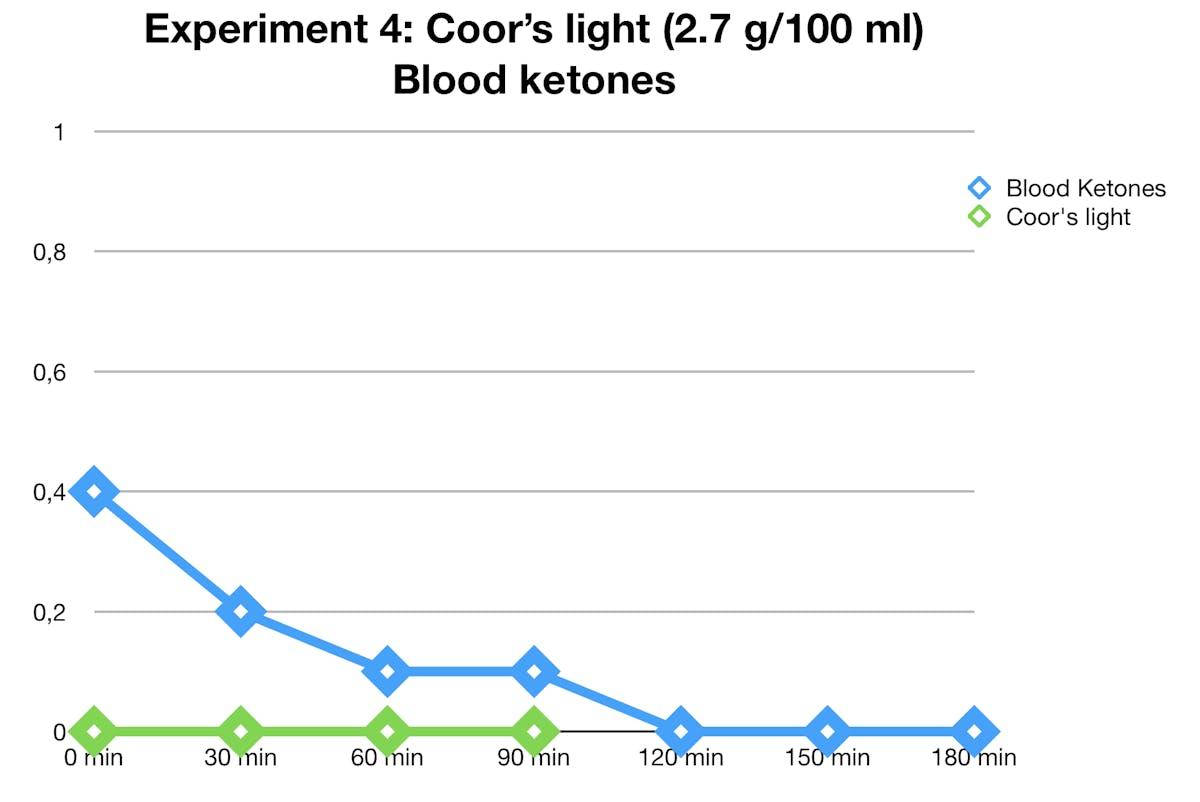


As with the Bud Light, I was showing very light levels of ketosis at the start of the experiment, which reduced to zero after consuming the beers.
Experiment 5 – Holsten Pils (2.6 g CHO/100 ml)
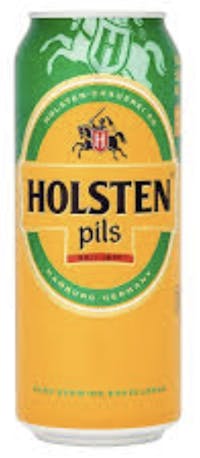


Holsten Pils has traditionally been popular among patients with type 2 Diabetes in the U.K. Why wouldn’t it be? On the can it boasts 0 g sugar per can! Let’s see what it does to my readings…
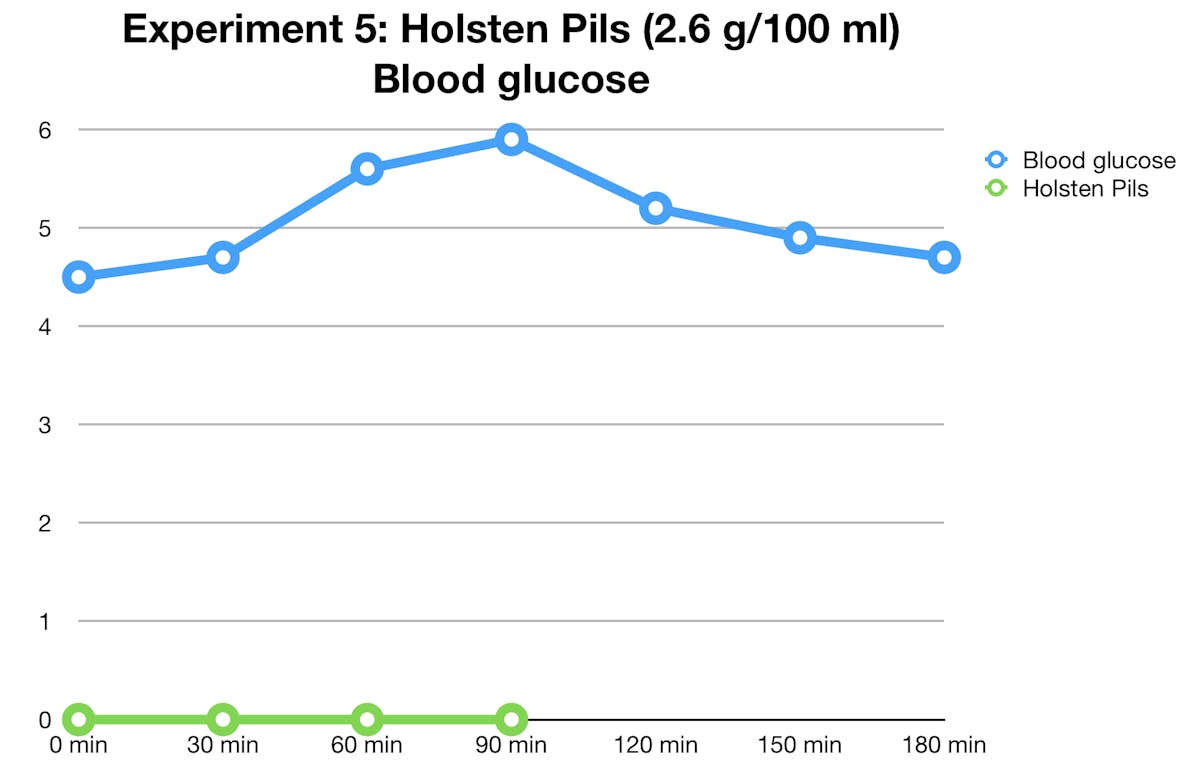


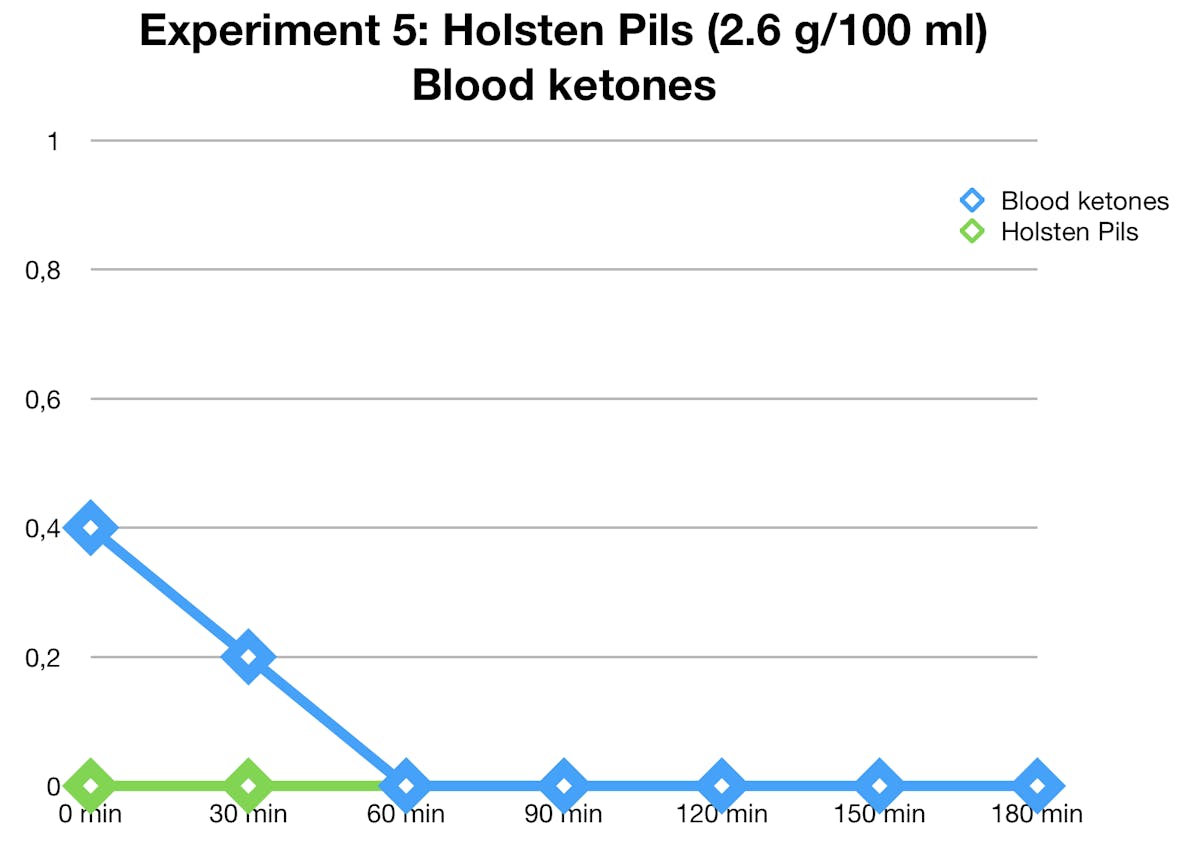


Both graphs express similar results as with the other types of beer: a greater increase in blood glucose than there was with water, and a reduction of ketone levels to zero. Though I was showing only light levels of ketosis at the start, the Holsten Pils did not allow me to go deeper into ketosis as the water fast did.
Experiment 6 – St Peter’s Without (6.4 g CHO/100 ml)
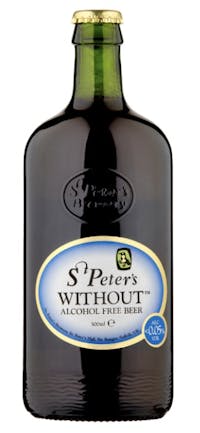


OK, so this beer was added as it is an alcohol free beer. What is interesting is that it has the highest amount of carbohydrate per 100 ml. This was added to the experiment as I often have patients in my clinic asking me if they can have alcohol-free beer when they are trying to reduce their carbohydrate intake.
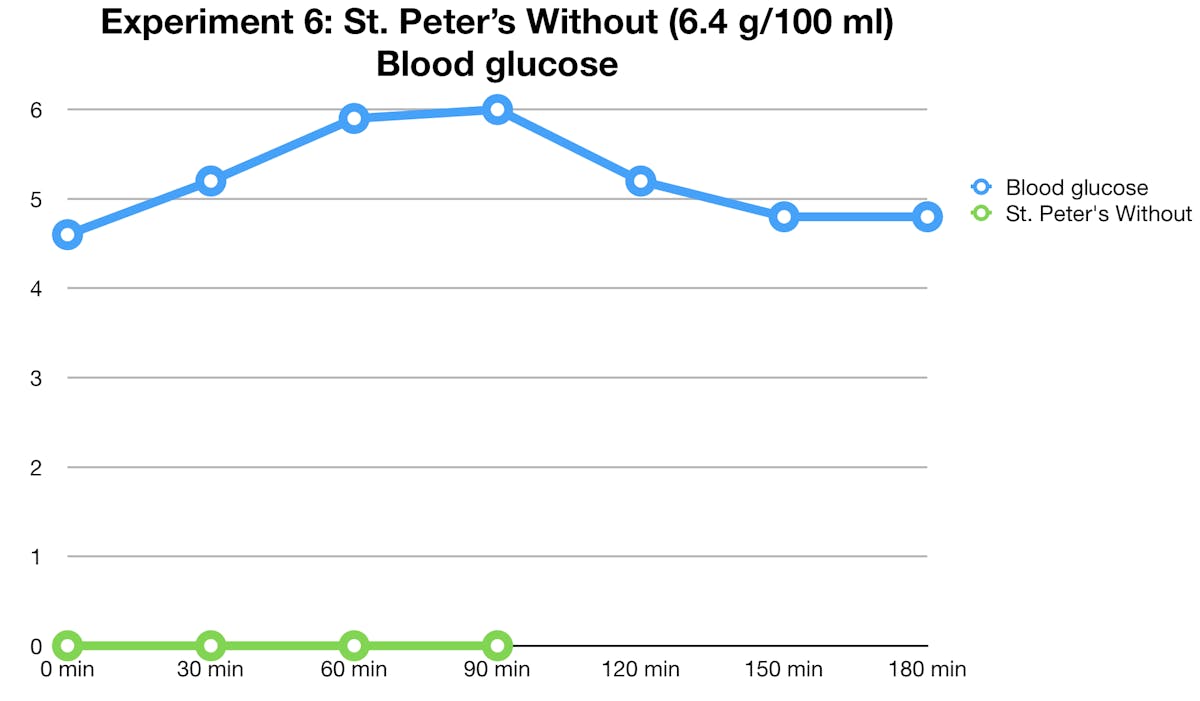


Again, my blood glucose rose more than with water! And it might go up higher with someone who has problems with insulin resistance.
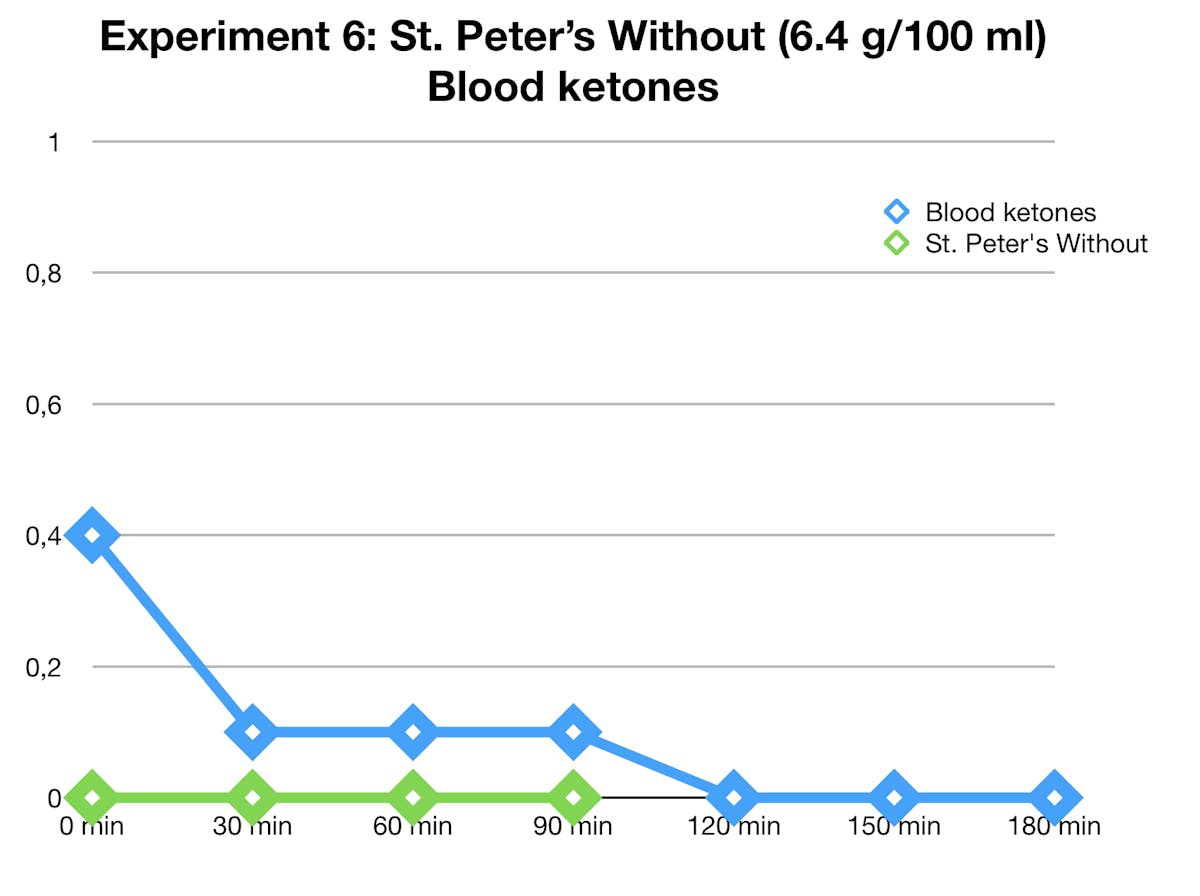


My level of ketosis was again very light, but blood ketones did shoot right back down to zero after consuming the beers, as with the other varieties.
Conclusions from the data
- Blood sugar levels go up and down throughout the day even when fasting. This is normal as the body continues to strive to maintain homeostasis.
- The only experiment to raise blood ketone levels was the water experiment.
- All beers raised my blood-sugar levels higher than water.
- All beers reduced my blood-ketone levels to 0.0.
- The highest starting blood glucose reading was on the same day as fasted exercise. This represents a normal physiological response to exercise.
What have I learned?/ What does this add?
- I reminded myself why I do not like beer, and I find that it makes me feel bloated too.
- I could see a pattern in the experiments that revealed that each beer, whether promoted as low-calorie or alcohol free or ‘light’ beer all resulted in higher blood-sugar readings compared to water.
- On day 3, I did not show blood ketones at all, and on other days I was only showing very low levels of ketones, below the level that would normally be described as nutritional ketosis.2 Nonetheless, as my ketones increased when consuming water, but decreased to zero when consuming all the varieties of beer, we can speculate that all the beers might knock somebody out of ketosis, if they were in a state of nutritional ketosis before consumption.
- Due to the fact that I am insulin sensitive [do not have pre-diabetes or T2DM], my blood sugar levels were controlled and did not rise above 6.4. In someone with type 2 diabetes or insulin resistance, blood sugar levels may rise much higher than mine did, and be hard to get down again.
- I have developed a newfound respect for patients who regularly test their blood-sugar readings. I did not appreciate how painful this can be and I now have a better understanding of why patients often avoid testing their blood sugar due to this painful barrier.
- This is an n=1 study. This means that there was only one test subject (me!) and we can’t make broader comments about how these beers would affect people in general. But, I hope to have shown you how important it is to be wary of labels and marketing. Plus, you can follow the protocol I used to test exactly how different types of beer affect you as an individual!
Disclaimer
I am a 31-year old, insulin sensitive male. I do not have diabetes or pre-diabetes. I live a low-carb lifestyle which includes a carbohydrate content of 100-120 g carbohydrates per day. This allows me to maintain my weight and also reach my health and fitness goals. I exercise regularly and do not take any prescribed medication. I was not in nutritional ketosis during this experiment.
Conclusion
I had hoped to perhaps be able to recommend a “best” option for people who want to enjoy beer as part of a low carb diet. However, even though the Holsten Pils and the St. Peter’s Without alcohol-free beer had slightly smaller effects on blood glucose, all the beers did cause a significant increase in blood-sugar levels and all beers brought my blood ketones down to zero.
It is also worth reiterating that I am insulin sensitive. For people who have pre diabetes or type 2 diabetes, the rise in blood sugar would likely be a lot higher. If you want to follow a low-carb or keto lifestyle, beer may not be the best choice for you. From this study there was a clear relationship between drinking beer and reducing levels of blood ketones. When it comes to enjoying alcohol, there are other options which may not have the same impact on your blood sugar readings. These include spirits, red wine and champagne.
Drink responsibly. Keep your level below the recommended weekly units and avoid drinking on consecutive days. There are a range of useful tips for healthy drinking, such as:
- For every alcoholic drink you have, have a glass of water.
- Try to avoid being thirsty when you drink alcohol.
- Plan what you eat alongside your alcohol to avoid snacking on high-carb foods and avoid making food choices which will not help you to reach your eating goals.
- Remember also, that people who follow a low-carb lifestyle are often more sensitive to alcohol than those on a high-carb diet, and need to consume less to become intoxicated. So be extra careful if you are just starting out on low carb: your limits may well have changed!
To conclude, if something seems too good to be true… like being able to enjoy low-calorie or low-carb beer in larger amounts and achieve your desired blood-sugar or blood-ketone goals… it probably is! Drinking several beers, be they normal, ‘light’ or ‘low’ will likely hinder your goal to keep carbs down, and will probably knock you out of ketosis.
There are a lot of clever marketing schemes out there, and more and more “low-carb” products will come onto the market as LCHF and keto increases in popularity. As always, be a critical and conscious consumer, and be wary of simply taking claims such as “light”, “low-carb”, “sugar free” or “effective carbs” at face value.
Low-carb alcohol guides
Earlier with Dr. Foley
Low carb and me – my journey as a GP
Low carb and sport – my journey
